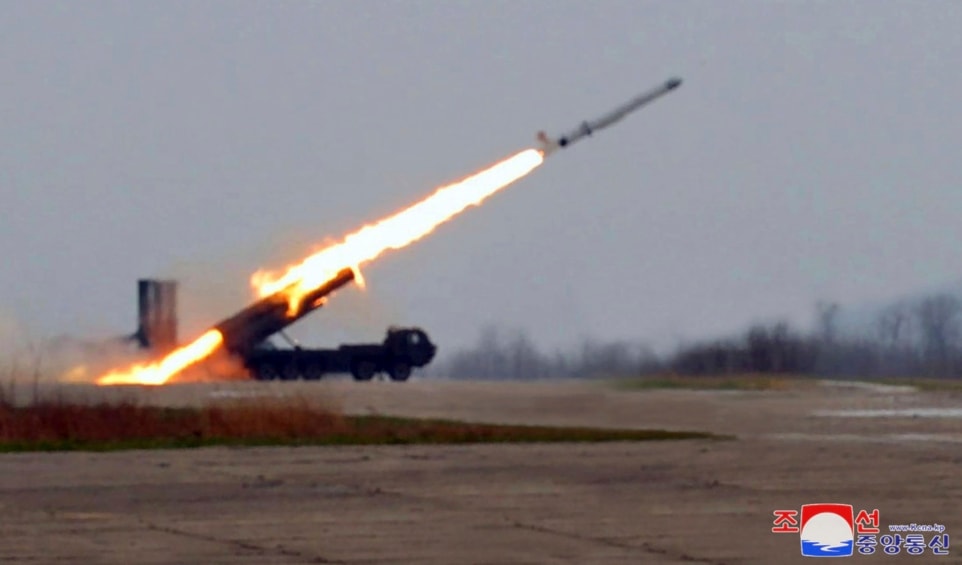DPRK conducts 'super-large warhead' test amid UN monitoring halt
The Democratic People's Republic of Korea (DPRK) has reportedly tested a "super-large warhead" for a strategic cruise missile, marking its first test since Russia's veto halted UN monitoring of sanctions violations.
-

In this photo provided by the DPRK government, a "Hwasal-1 Ra-3 strategic cruise missile," is launched from a launcher vehicle in DPRK, April 19, 2024. (AP)
The Democratic People's Republic of Korea has tested a "super-large warhead" designed for a strategic cruise missile, according to reports by state media released on Saturday.
The testing marks the first test for the DPRK since Russia, back in March, used its veto at the United Nations Security Council, and effectively halted UN monitoring of violations concerning the numerous sanctions imposed on Kim Jong Un's government due to its nuclear and weapons program.
According to KCNA, "The DPRK Missile Administration has conducted a power test of a super-large warhead designed for 'Hwasal-1 Ra-3' strategic cruise missile," adding that Pyongyang also test-launched a "'Pyoljji-1-2' new-type anti-aircraft missile in the West Sea of Korea".
Reportedly, the tests were carried out on Friday afternoon as South Korea's military released a report on Saturday notifying that they detected "several cruise missiles and surface-to-air missiles" fired toward the Yellow Sea, at around 3:30 pm Friday, and stressing that if the DPRK "commits a provocation, we will punish it overwhelmingly and resolutely".
It is important to note that earlier this year, the DPRK successfully test-fired an intermediate-range solid-fuel ballistic missile, as reported by KCNA, categorizing the launch as part of its "regular activities for developing powerful weapon systems."
DPRK praises Moscow's veto for blocking UN sanctions monitoring
The Permanent Representative of the DPRK to the UN, Kim Song, expressed gratitude to Russia on Thursday for exercising its veto power to block the renewal of an expert sanctions panel monitoring Pyongyang, effectively halting official UN oversight of sanctions on the nation.
Ambassador Kim Song lauded Russia's action "as an independent exercise of the right to international justice and impartiality."
Since 2006, the DPRK government has faced extensive sanctions imposed by the UN Security Council over its nuclear program. For the past four years, Russia and China have been actively pushing for the Security Council to ease the sanctions, which currently lack an expiration date.
Moscow's recent veto at the Security Council doesn't terminate the sanctions but prevents the council from renewing the yearly mandate for a panel of experts responsible for monitoring the implementation of sanctions and investigating numerous alleged violations.
According to Russia's UN envoy Vasily Nebenzia, without an annual review to evaluate and potentially adjust the sanctions, maintaining the panel of experts is deemed unwarranted.
"The panel has continued to focus on trivial matters that are not commensurate with the problems facing the peninsula," Nebenzia said on March 28. "Russia has called for the council to adopt a decision to hold an open and honest review of the Council sanctions... on an annual basis."
Read more: China, DPRK convene to reinforce and mark 75 years of diplomatic ties

 3 Min Read
3 Min Read








